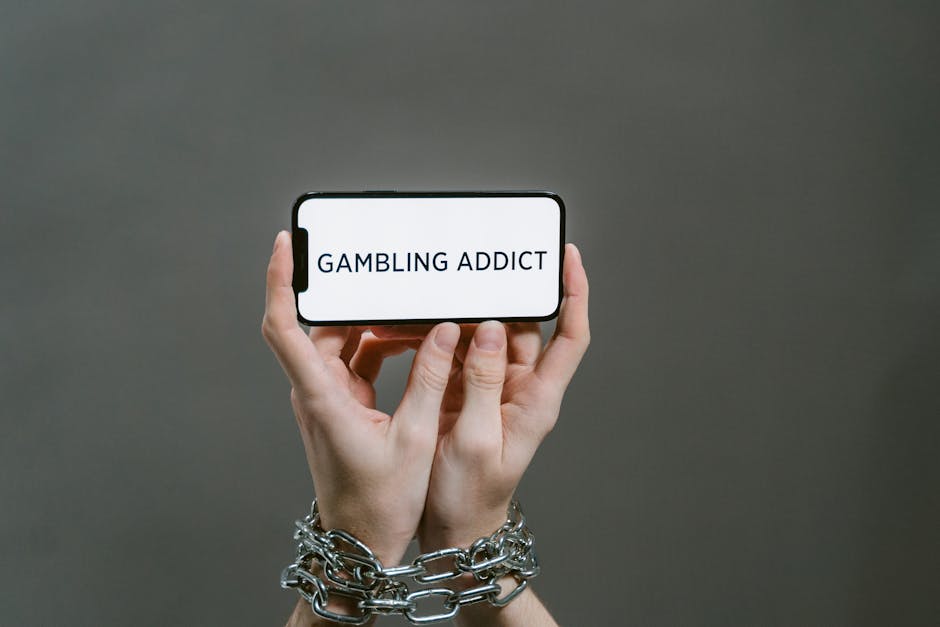Struggling with a gambling addiction can have devastating effects not only on one’s mental and emotional well-being but also on their financial stability. In my years of experience, I’ve seen how important it is for individuals to address the financial aspects of their addiction as part of their journey to recovery. In this article, I’ll share valuable insights on financial rehabilitation for gambling addicts and the crucial steps they can take to regain control of their finances.
From understanding the financial consequences of compulsive gambling to developing a sustainable budgeting plan, I’ll delve into practical strategies that can help individuals break free from the cycle of financial turmoil. As someone passionate about guiding individuals towards a path of financial stability, I believe that addressing the monetary challenges associated with gambling addiction is a vital component of the recovery process. Stay tuned to discover actionable steps that can pave the way for a brighter financial future for those seeking to overcome their gambling addiction.
Understanding Gambling Addiction and Financial Impacts
In comprehending the world of gambling addiction, it’s crucial to grasp the profound financial repercussions that often accompany this compulsive behavior, shedding light on the monetary turmoil individuals face. Let’s delve into the financial and psychological aspects entwined in the realm of gambling addiction recovery.
The Financial Ramifications of Gambling Addiction
The financial aftermath of gambling addiction can be devastating, leading individuals into a cycle of debt and financial instability. Addiction-driven losses can rapidly deplete savings, strain relationships, and result in overwhelming debt burdens. For instance, compulsive gamblers may resort to borrowing money, incurring high-interest loans, or even engaging in illegal activities to finance their addiction, exacerbating their financial troubles.
Psychological Drivers Behind Gambling
Examining the psychological underpinnings of gambling reveals a complex interplay of factors that contribute to addictive behavior. Individuals grappling with gambling addiction often experience heightened feelings of thrill and excitement while wagering, seeking to replicate the euphoric highs associated with winning. Psychological triggers such as stress, anxiety, or a need for escape can fuel compulsive gambling habits, leading individuals to chase losses in a bid to recoup financial deficits, perpetuating a cycle of destructive behavior.
Steps to Financial Rehabilitation for Gambling Addicts
After recognizing the financial devastation caused by gambling addiction, it’s crucial to take proactive steps towards recovery. Here are essential strategies for financial rehabilitation:
- Assessing the Financial Damage
To start the journey towards financial stability, I recommend assessing the full extent of the financial damage inflicted by gambling addiction. By examining bank statements, credit card bills, and outstanding debts, you can gain clarity on the magnitude of the issue. Understanding the depth of the problem is the first step in formulating an effective recovery plan. - Creating a Budget and Debt Management Plan
Once you have a comprehensive picture of your financial situation, developing a realistic budget is fundamental. I suggest outlining your income sources, essential expenses, and debt obligations. By prioritizing debt repayments and curbing unnecessary expenditures, you can gradually regain control over your finances. Additionally, crafting a debt management plan with manageable repayment goals can aid in tackling debts systematically.
By systematically addressing the financial aftermath of gambling addiction through assessment and proactive budgeting, individuals can pave the way for a stable financial future.
Professional Help and Resources

When seeking professional help and resources for financial rehabilitation as a gambling addict, there are various avenues to consider. Here are some key options to support your recovery journey.
Types of Financial Advisors and Counselors
Engaging with a financial advisor or counselor can be instrumental in navigating the complexities of managing financial challenges resulting from gambling addiction. Financial advisors specialize in providing tailored financial guidance based on individual circumstances. They can assist in creating personalized budgets, developing savings plans, and offering strategies for debt management. Additionally, counselors with expertise in financial therapy can address the underlying emotional aspects associated with financial difficulties, helping individuals develop healthier attitudes and behaviors towards money.
Support Groups and Peer-Led Programs
Participating in support groups and peer-led programs tailored to individuals recovering from gambling addiction can provide invaluable assistance. These groups offer a sense of community, understanding, and shared experiences that can promote healing and progress. Support groups create a safe space for individuals to discuss challenges, share insights, and receive encouragement from others who have faced similar struggles. Peer-led programs incorporate the wisdom and support of individuals who have successfully overcome gambling addiction, offering guidance, accountability, and inspiration for those on the path to recovery.
Preventing Relapse and Maintaining Financial Health
As someone in financial recovery from gambling addiction, I understand the importance of taking steps to prevent relapse and ensure ongoing financial stability. Here are essential strategies and the significance of continuous financial education to support your journey:
Strategies to Avoid Relapse
In my experience, developing a robust relapse prevention plan is crucial. Firstly, identifying triggers that may lead to gambling urges is key. By recognizing these triggers, I can proactively address them and employ healthier coping mechanisms. Secondly, setting up barriers, such as self-exclusion from gambling establishments or limiting access to cash, has been effective in maintaining my abstinence. Lastly, staying connected with a support network, whether through therapy, support groups, or trusted individuals, provides the necessary accountability and encouragement during challenging times.
Importance of Ongoing Financial Education
Continuing to educate myself about personal finance has been instrumental in sustaining my financial health post-recovery. By understanding concepts like budgeting, saving, and investing, I can make informed decisions and avoid falling back into harmful financial patterns. Additionally, seeking financial literacy resources tailored to individuals recovering from gambling addiction has empowered me to rebuild my financial foundation and secure a stable future.
As I remain committed to preventing relapse and prioritizing my financial well-being, incorporating these strategies and investing in ongoing financial education are central to my continued success in financial rehabilitation.




